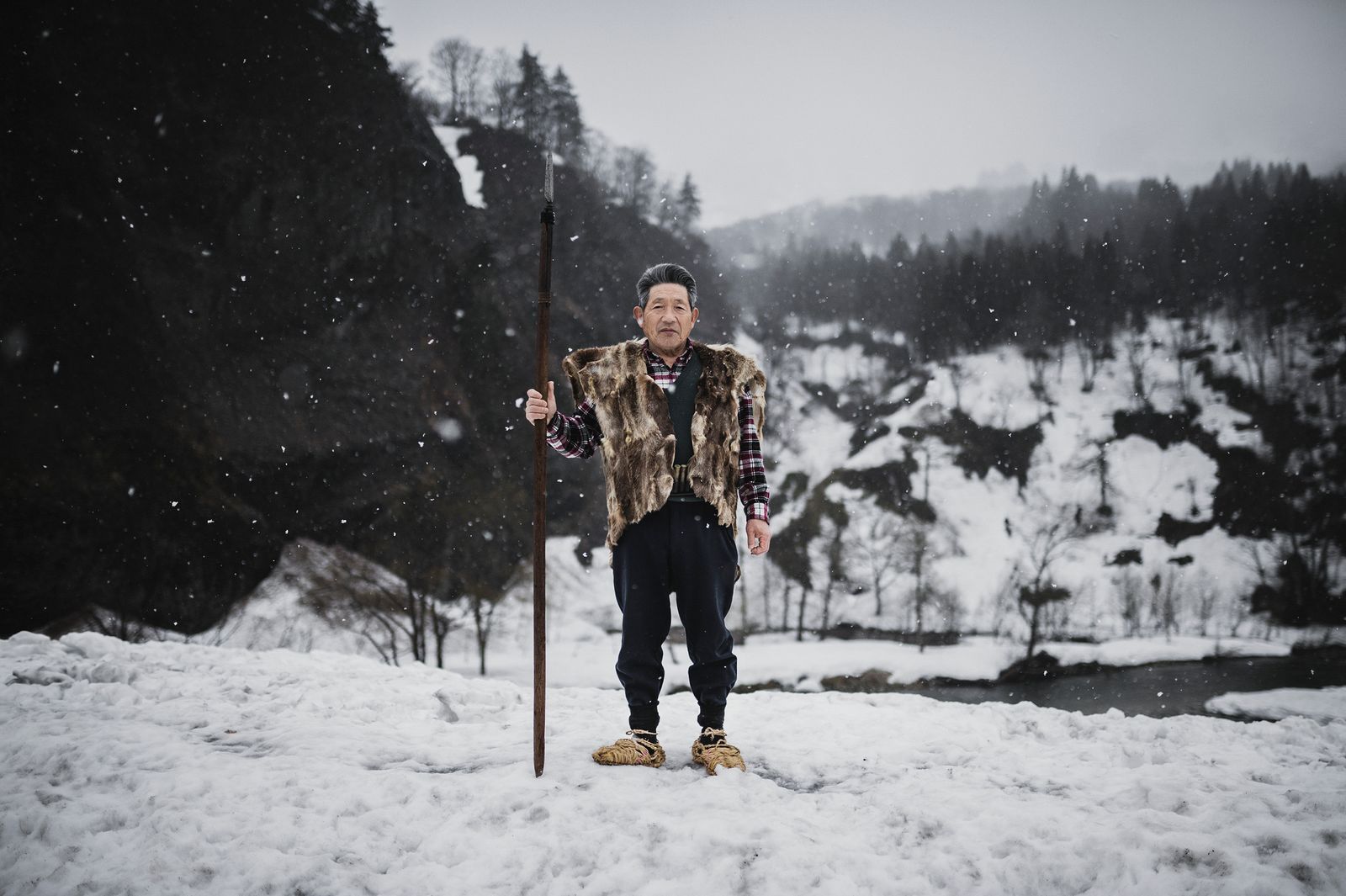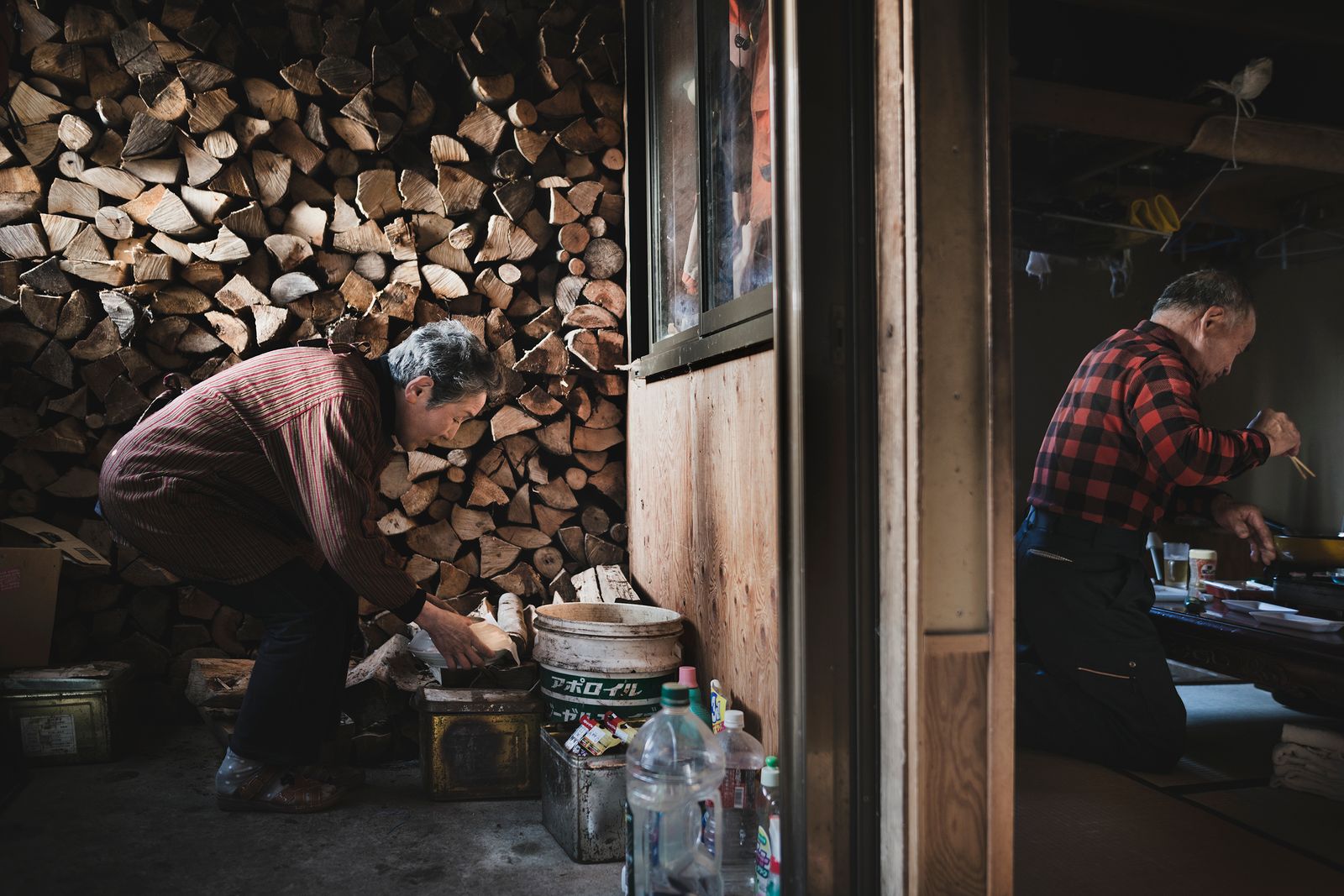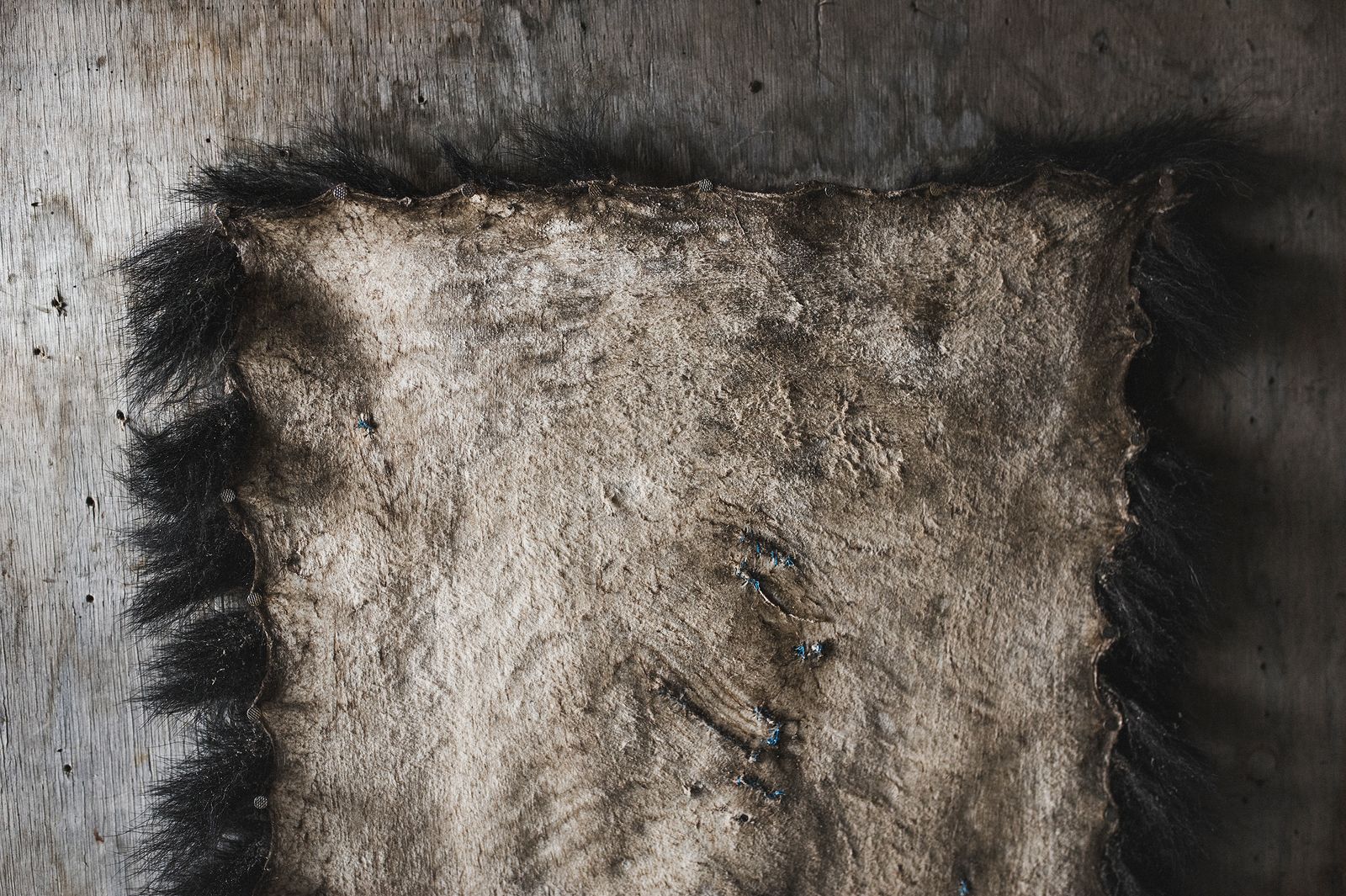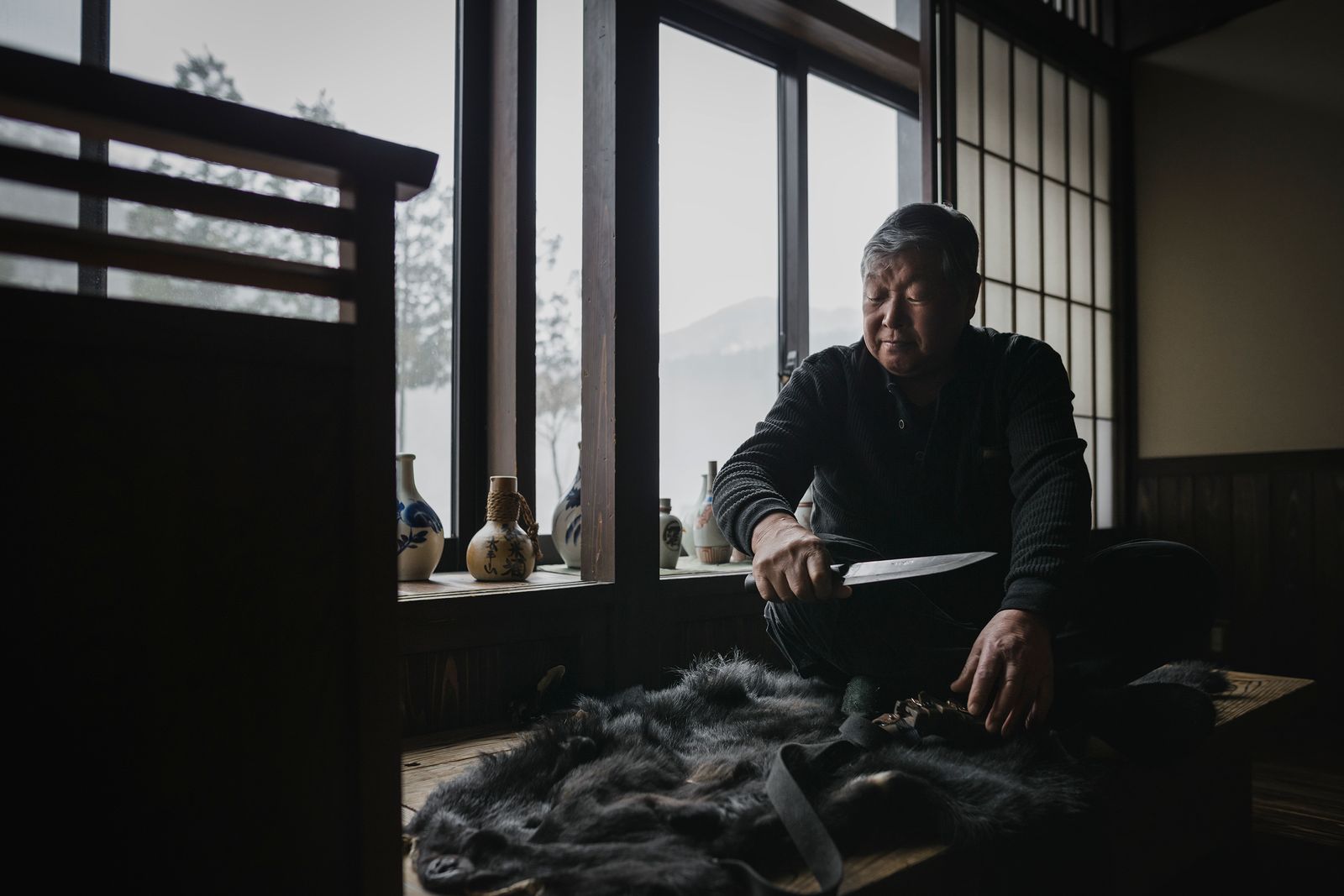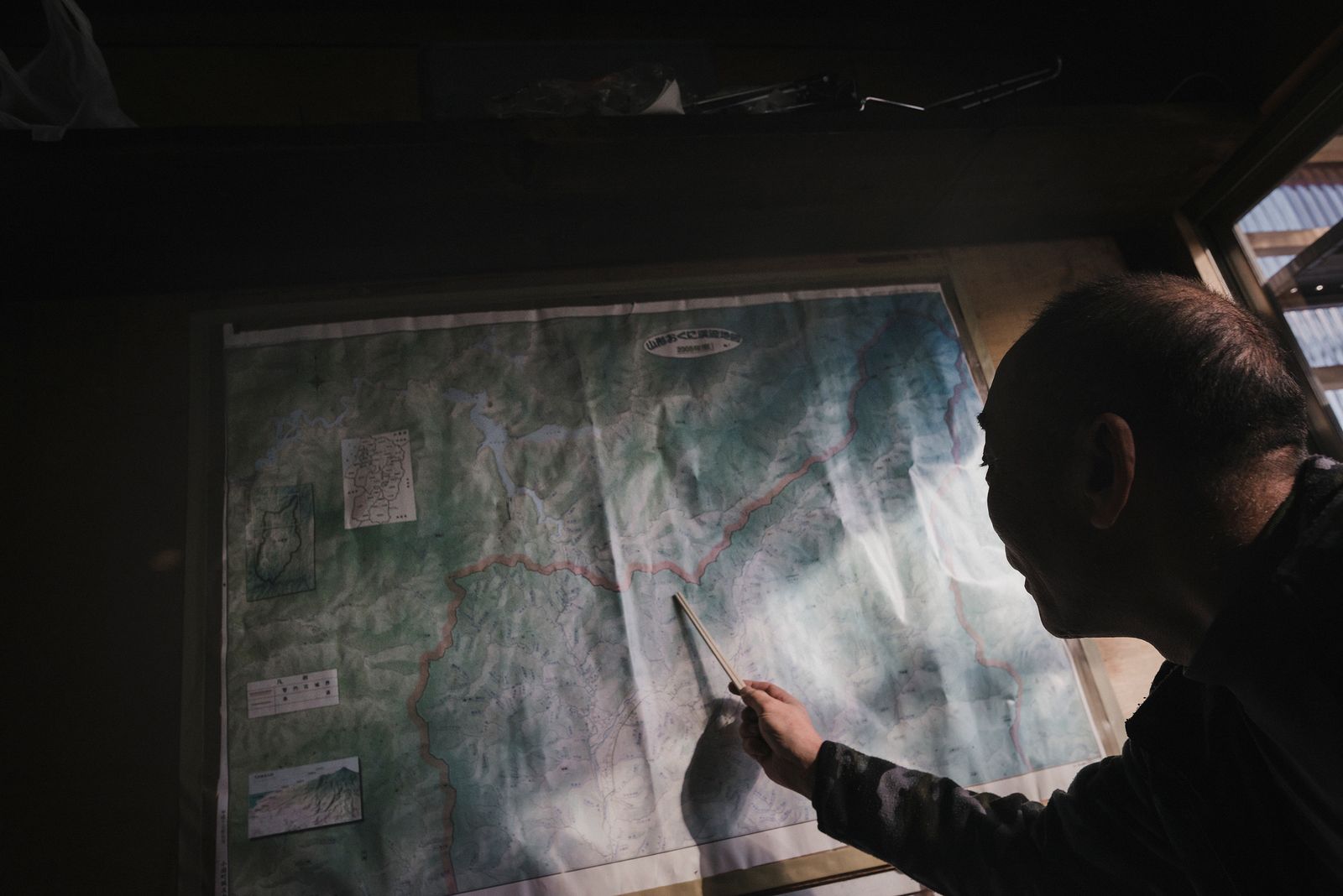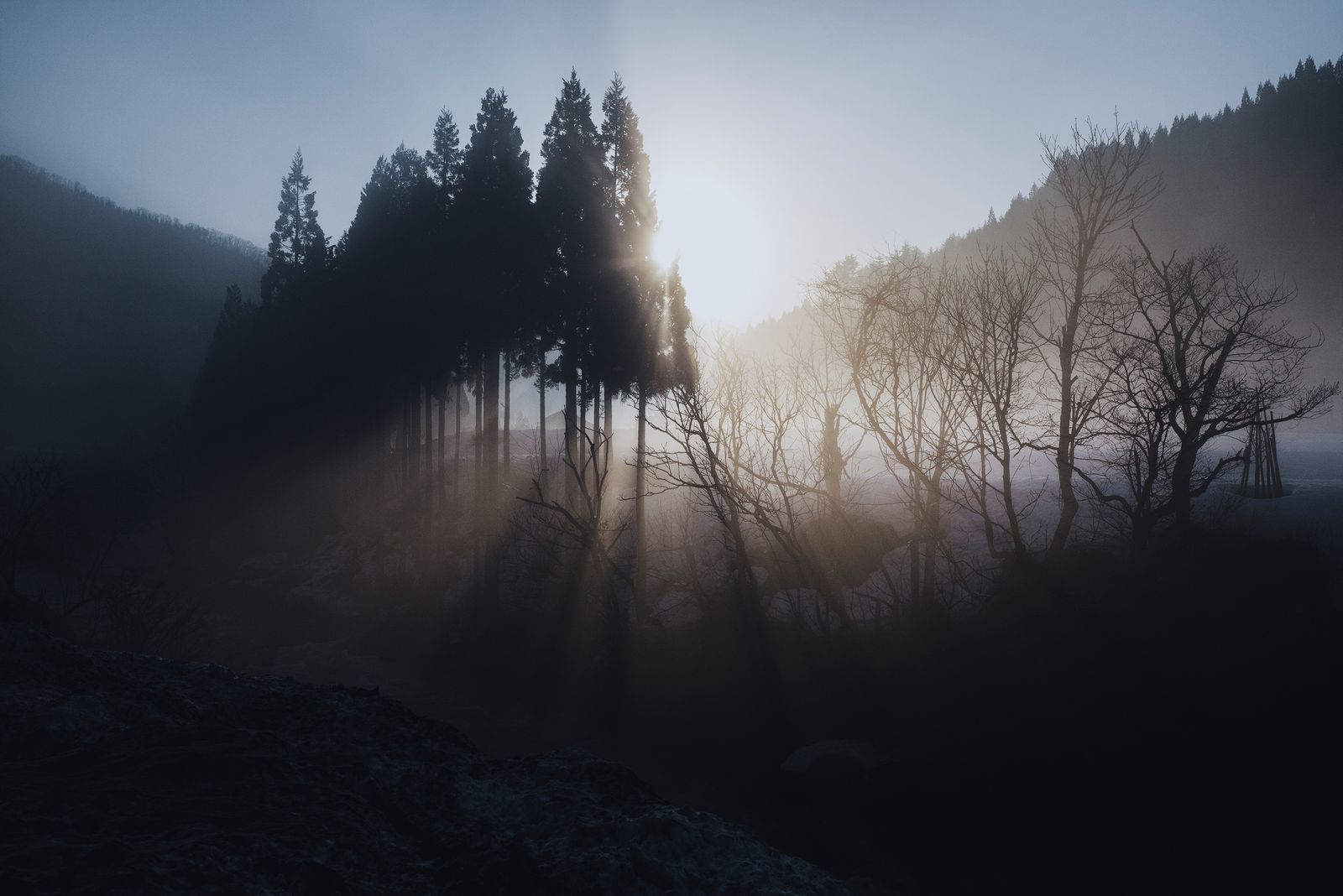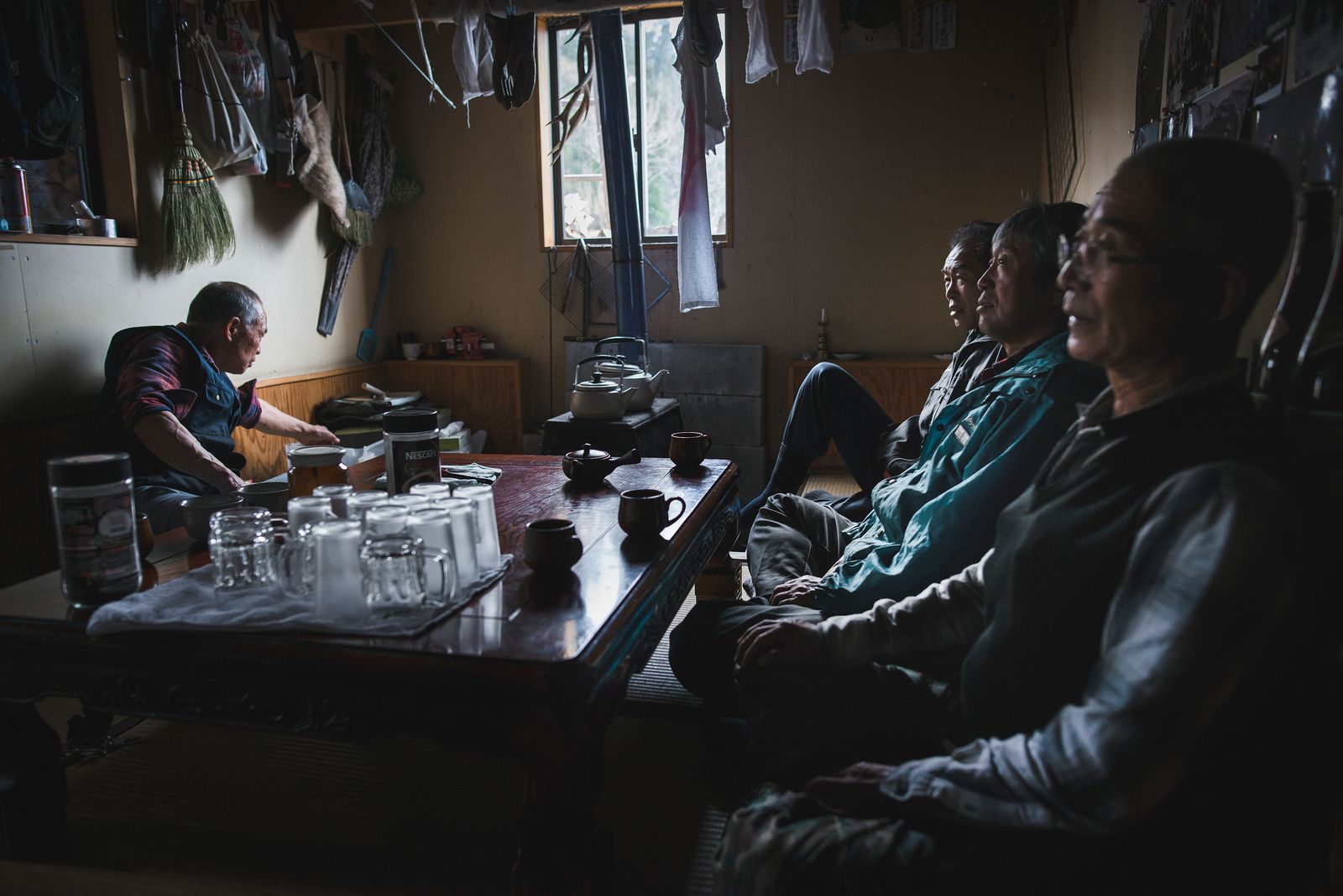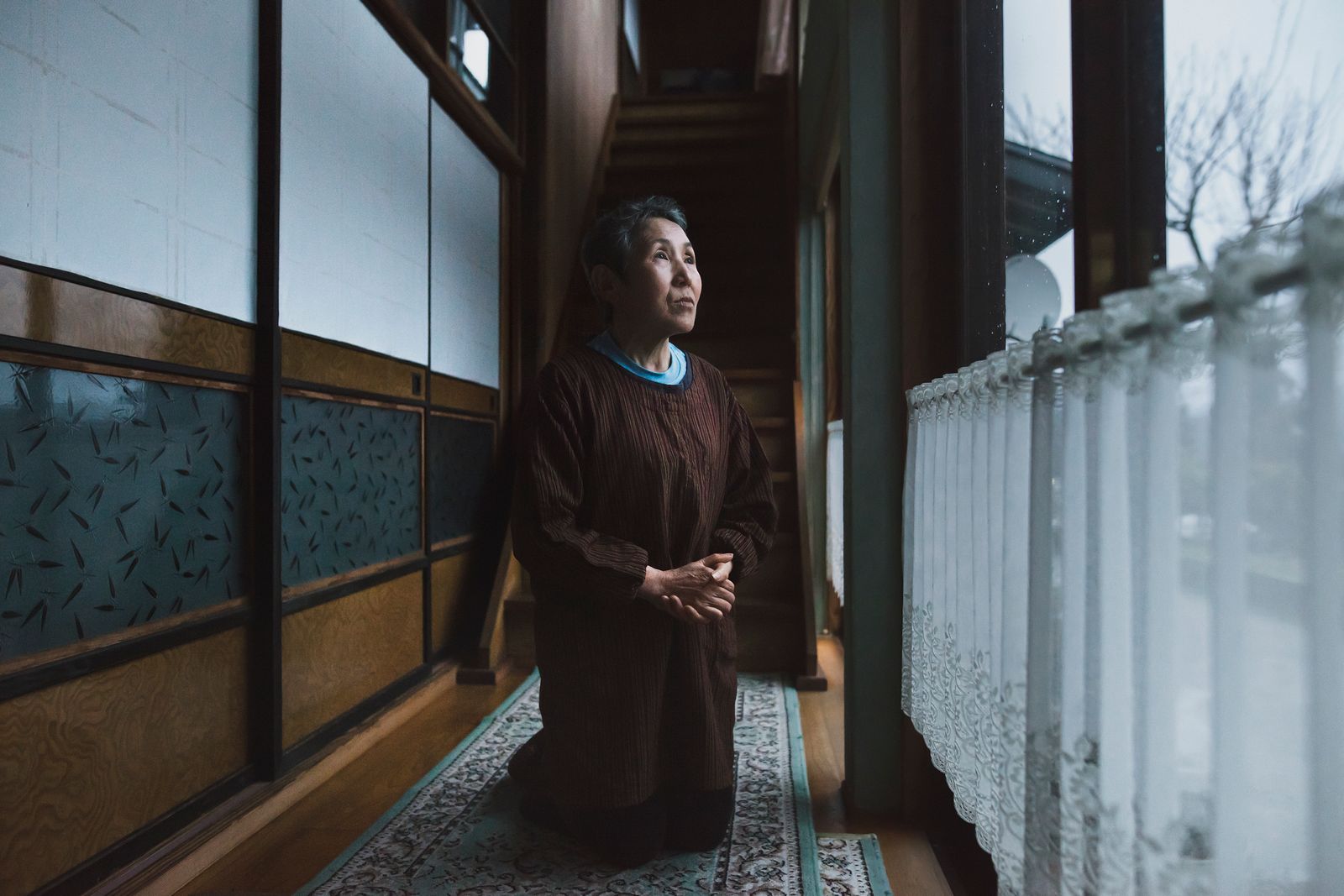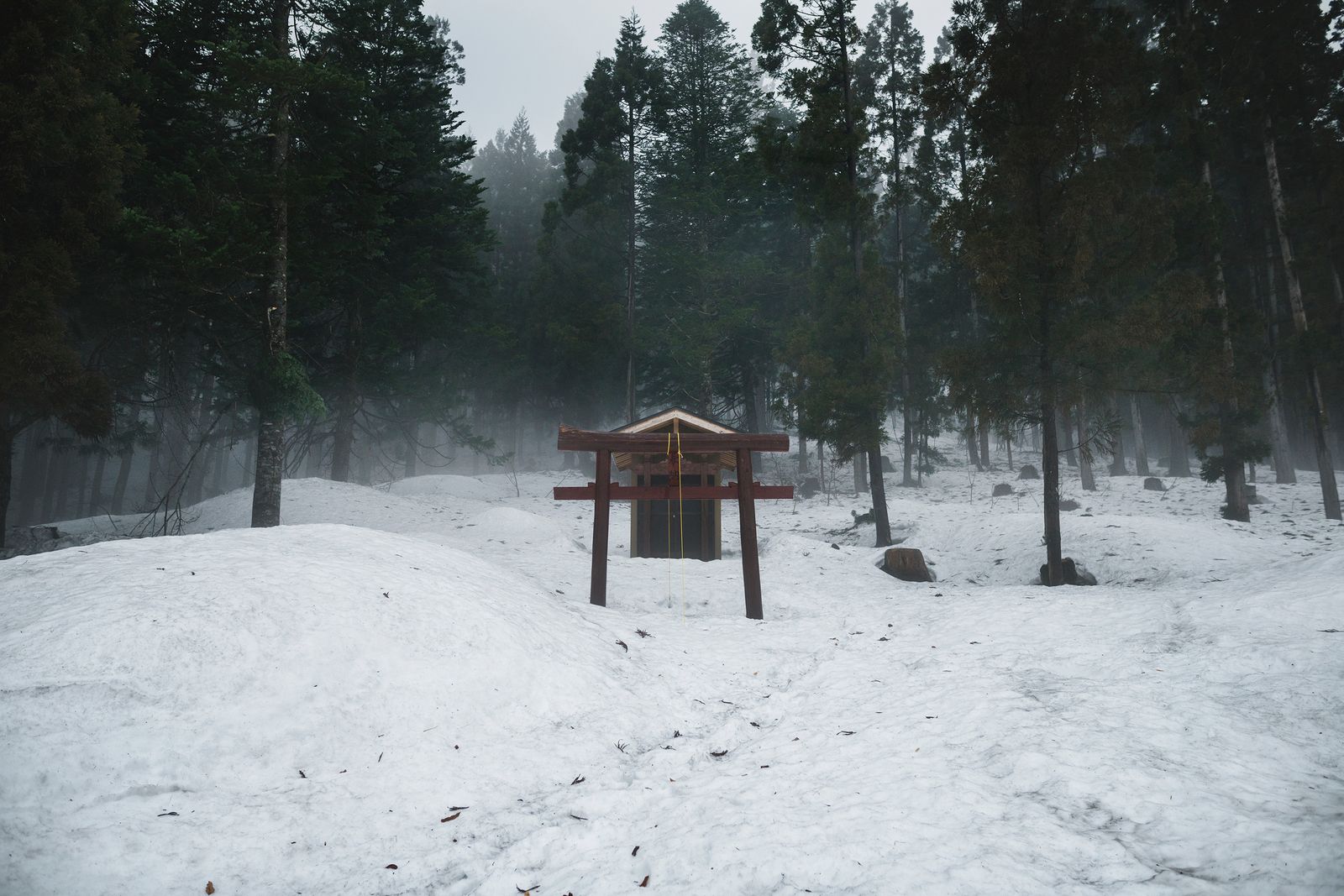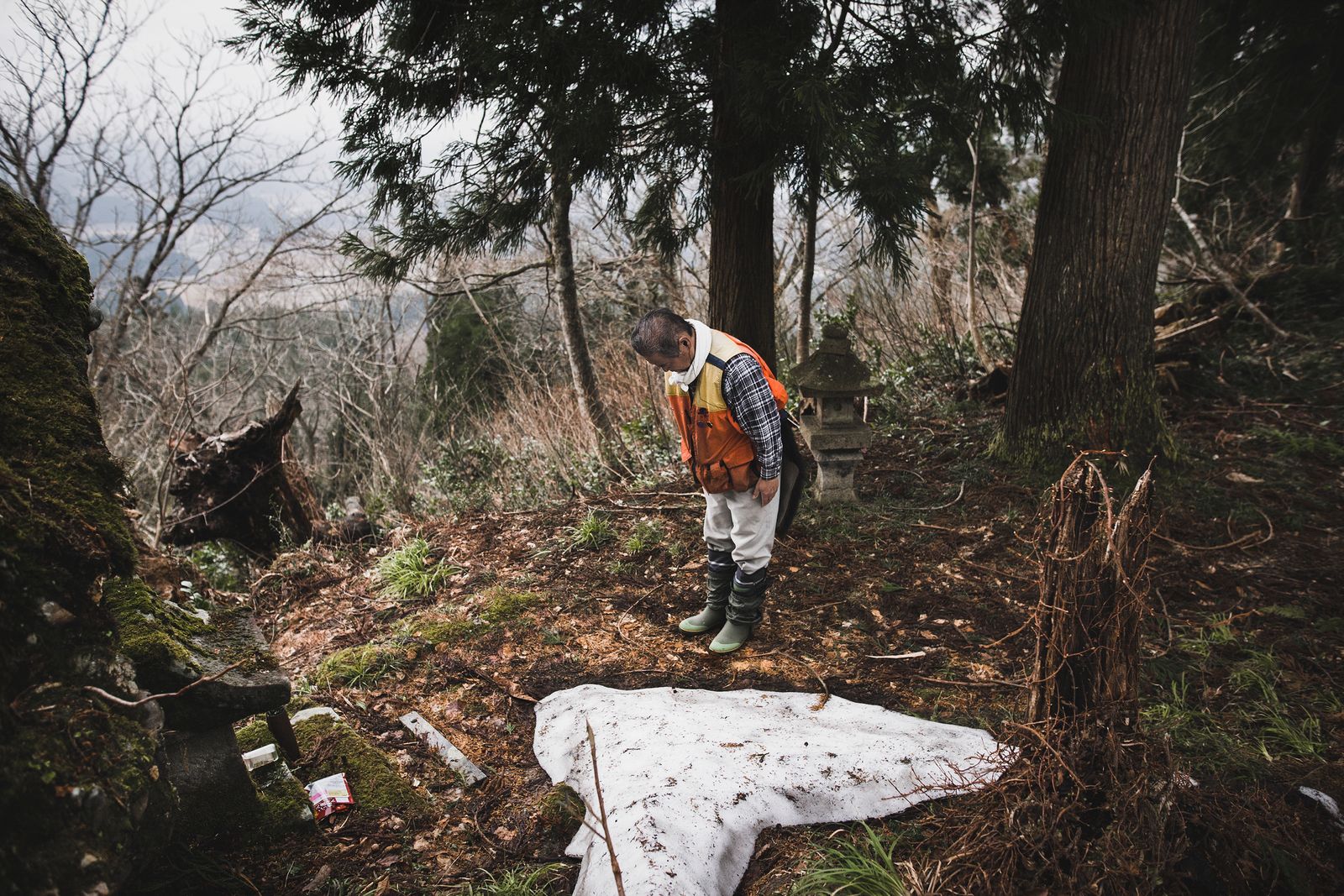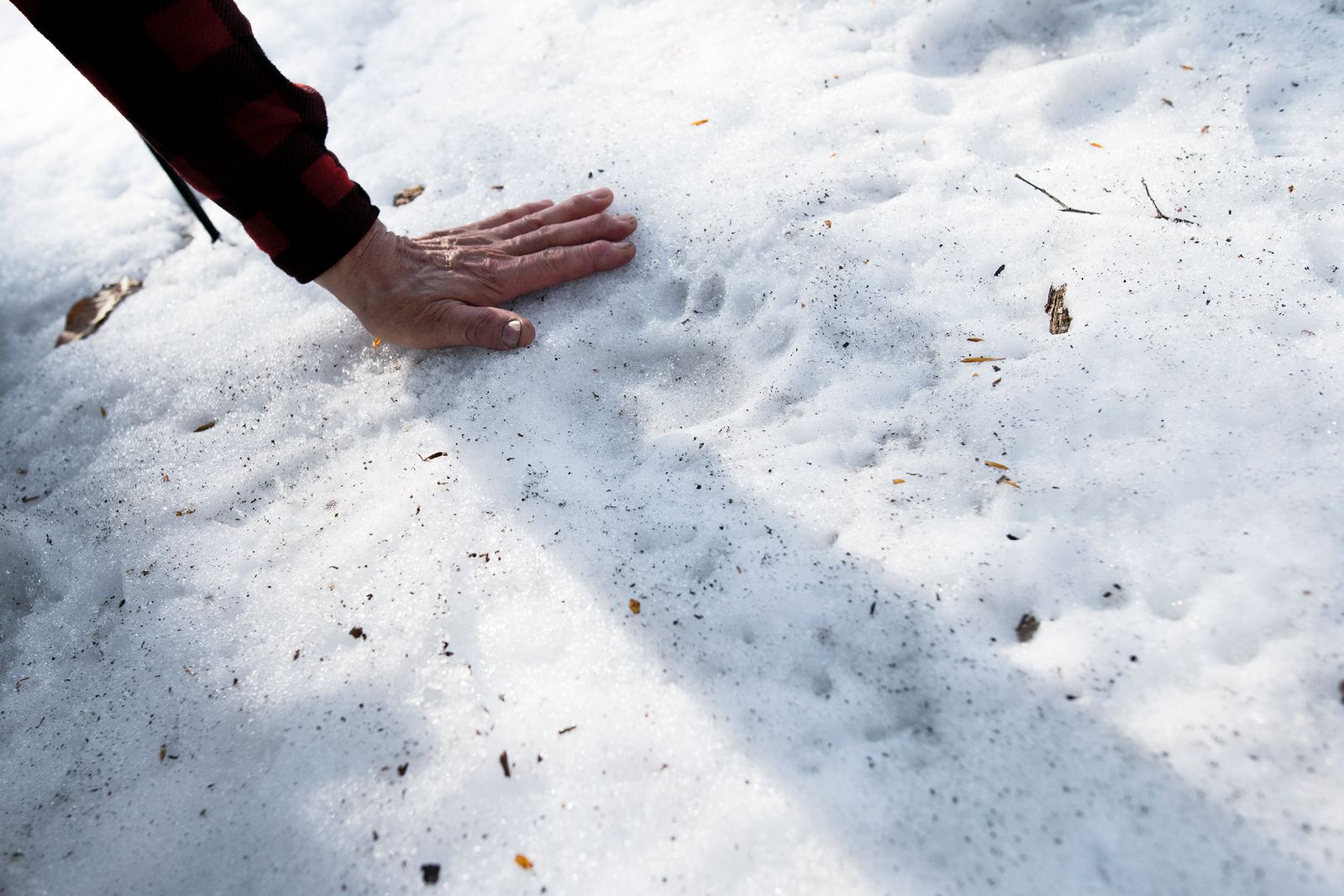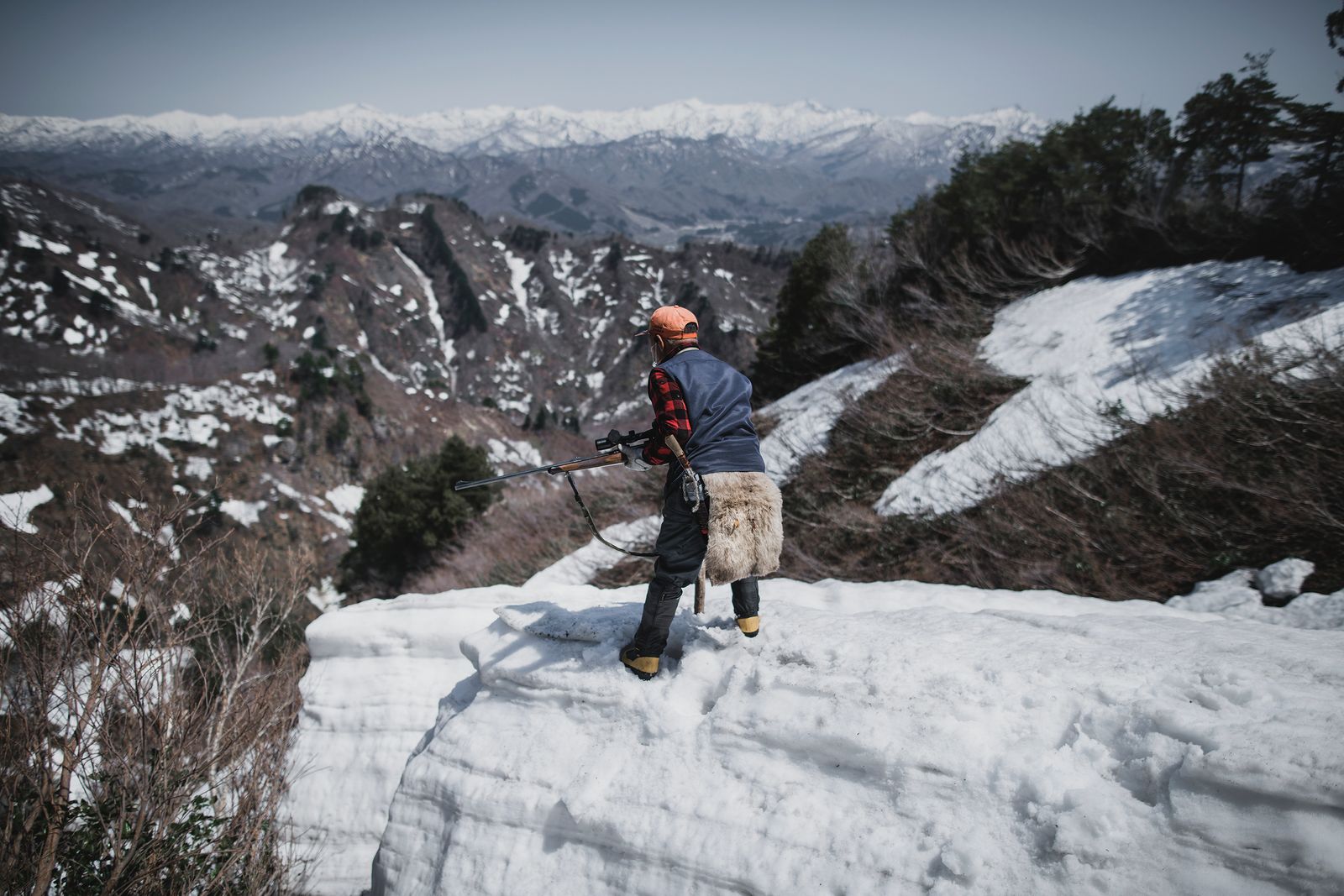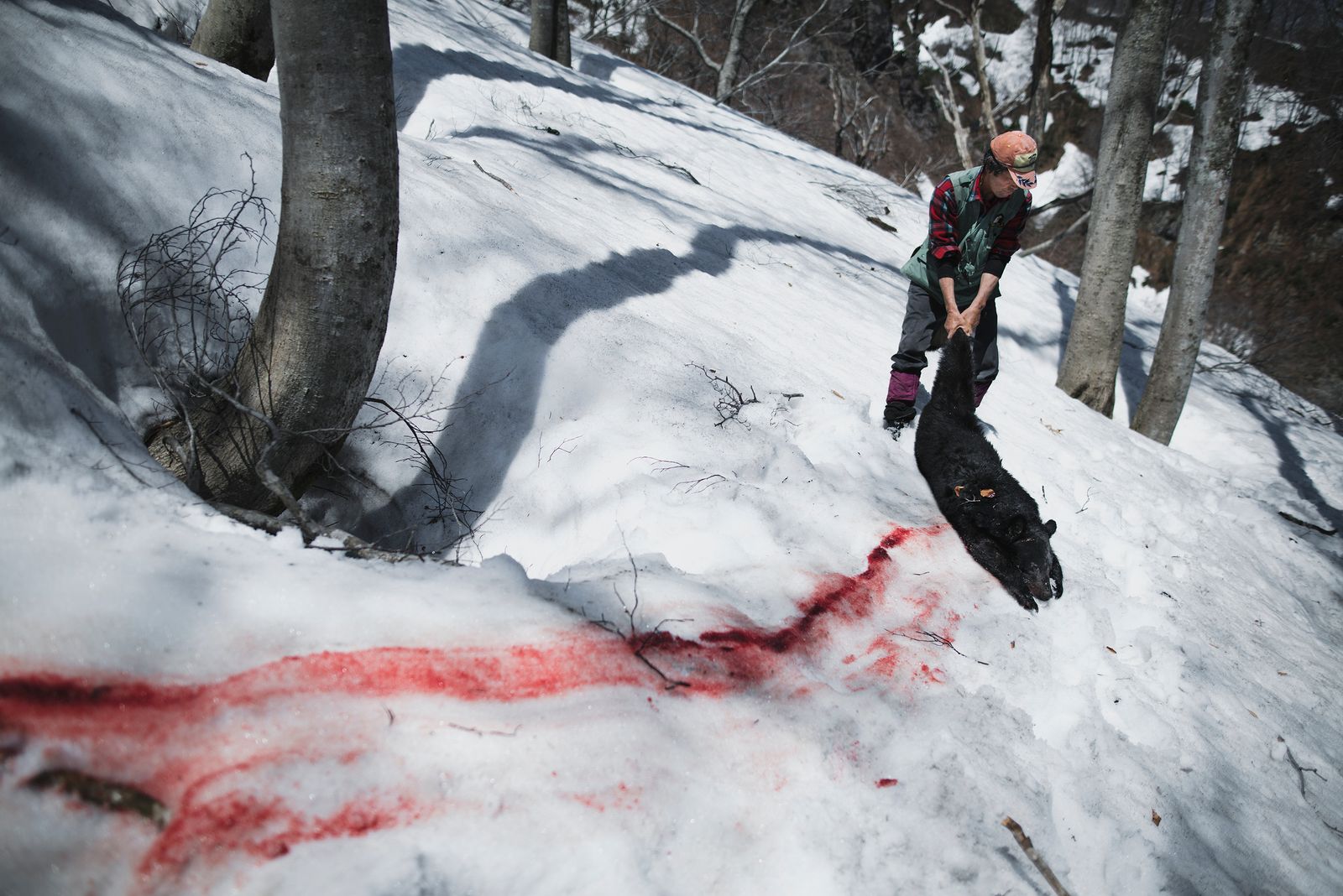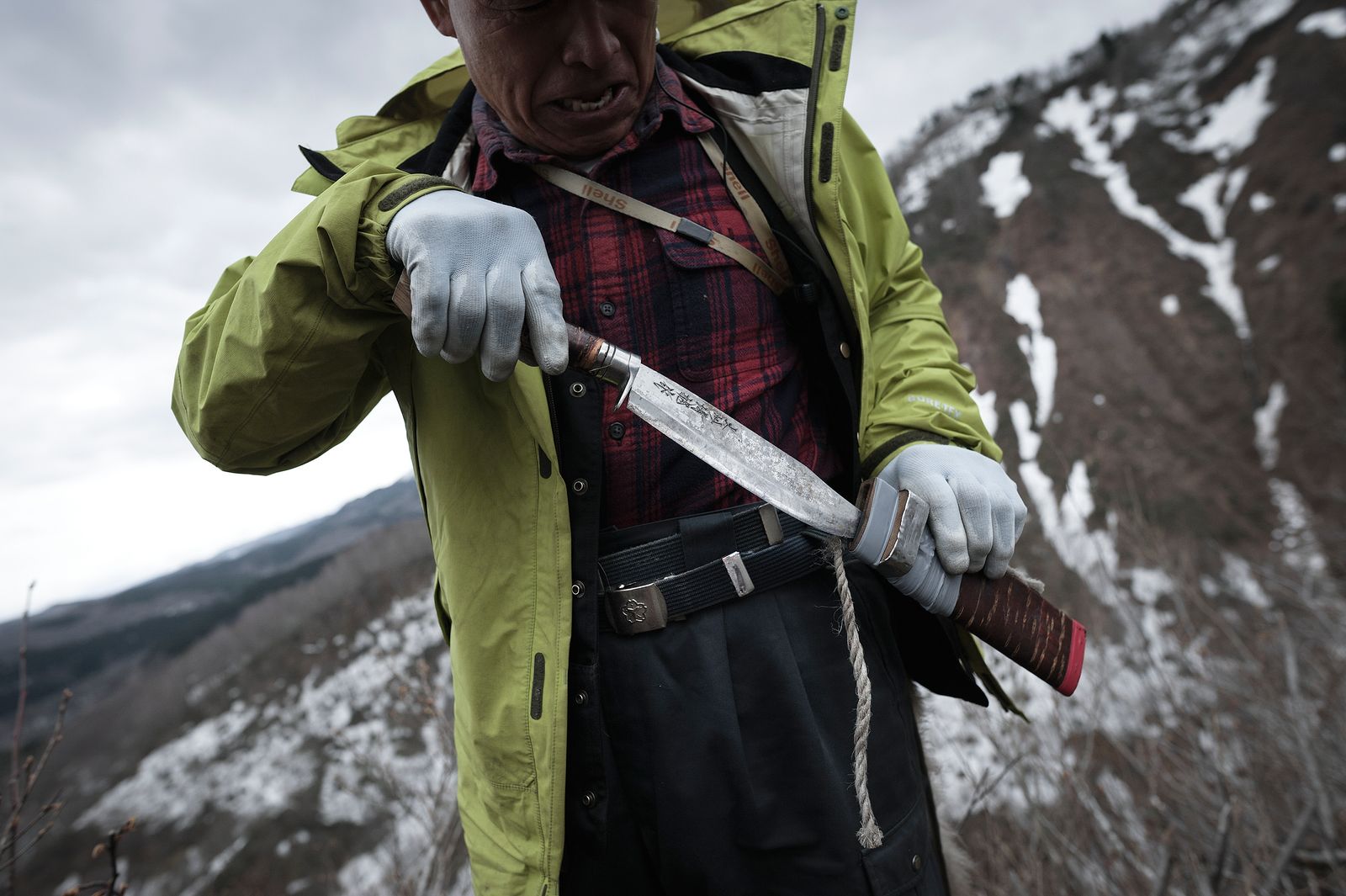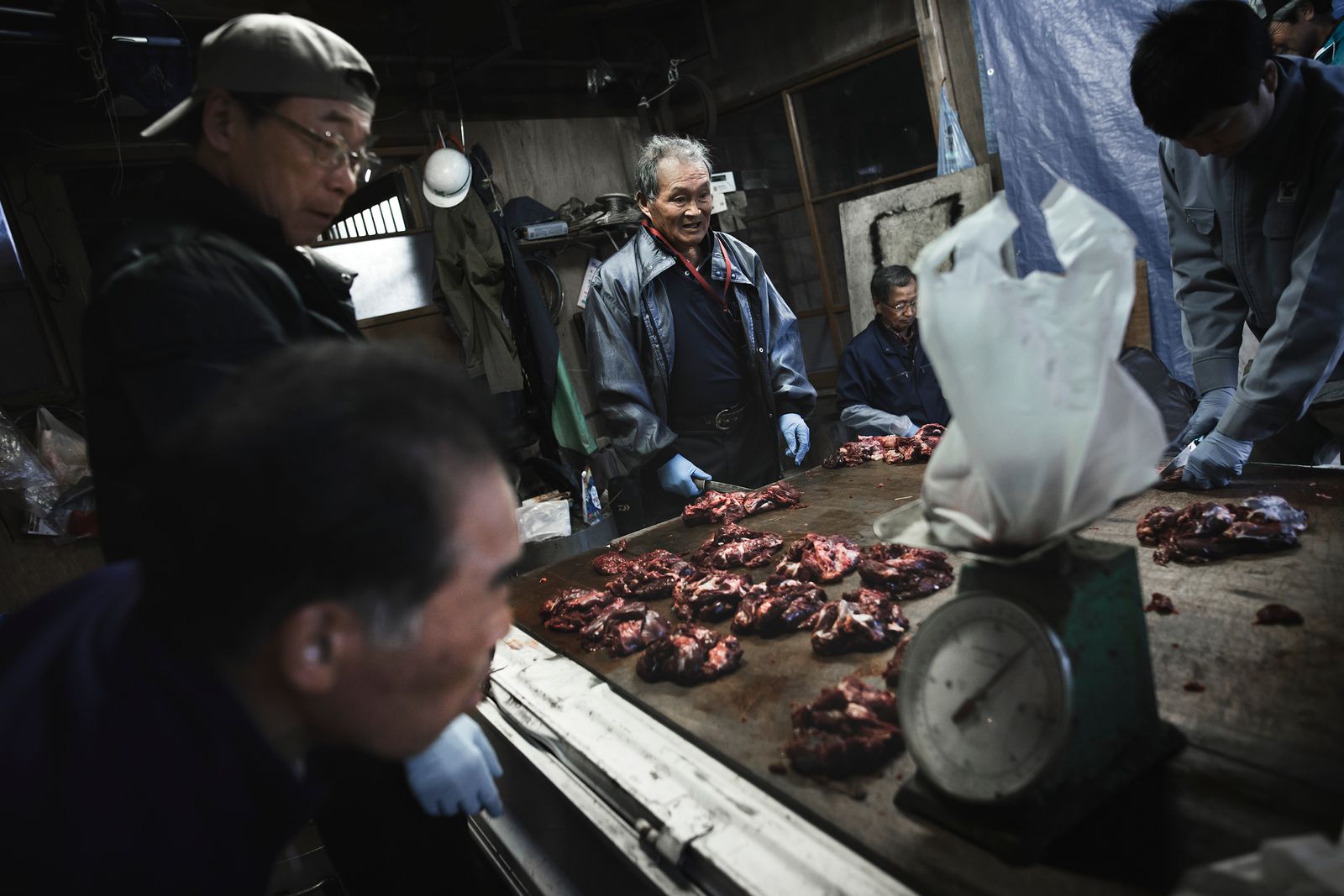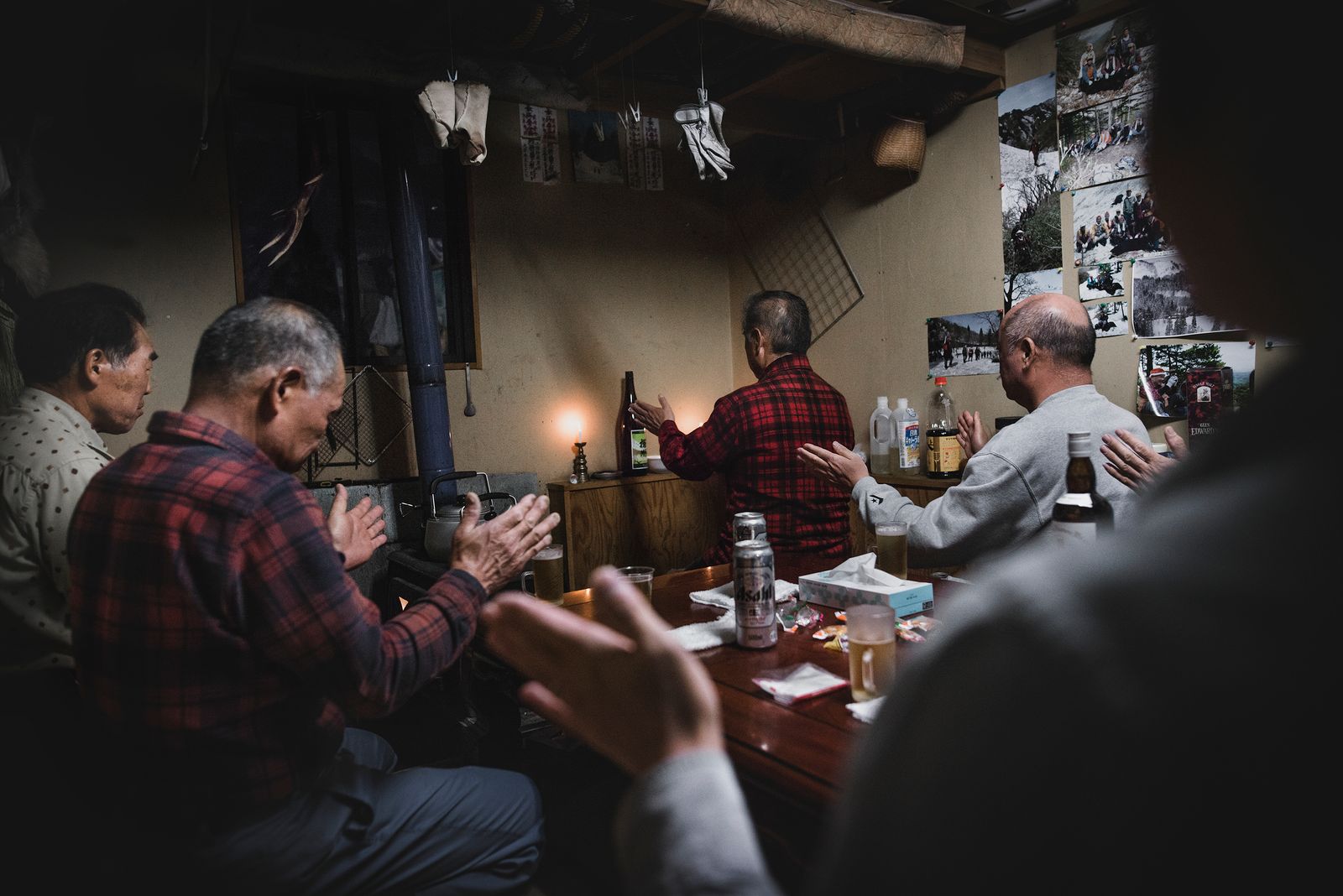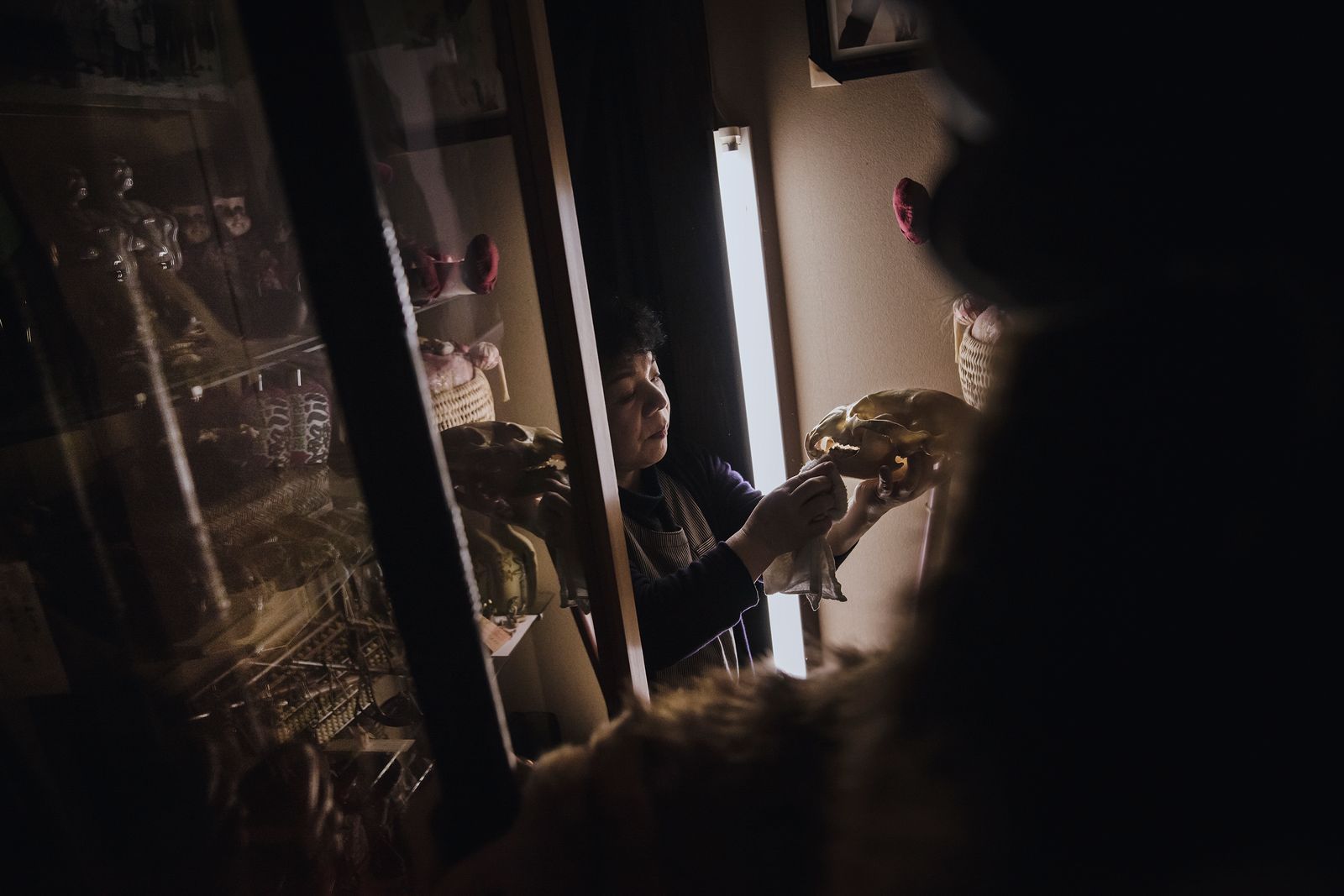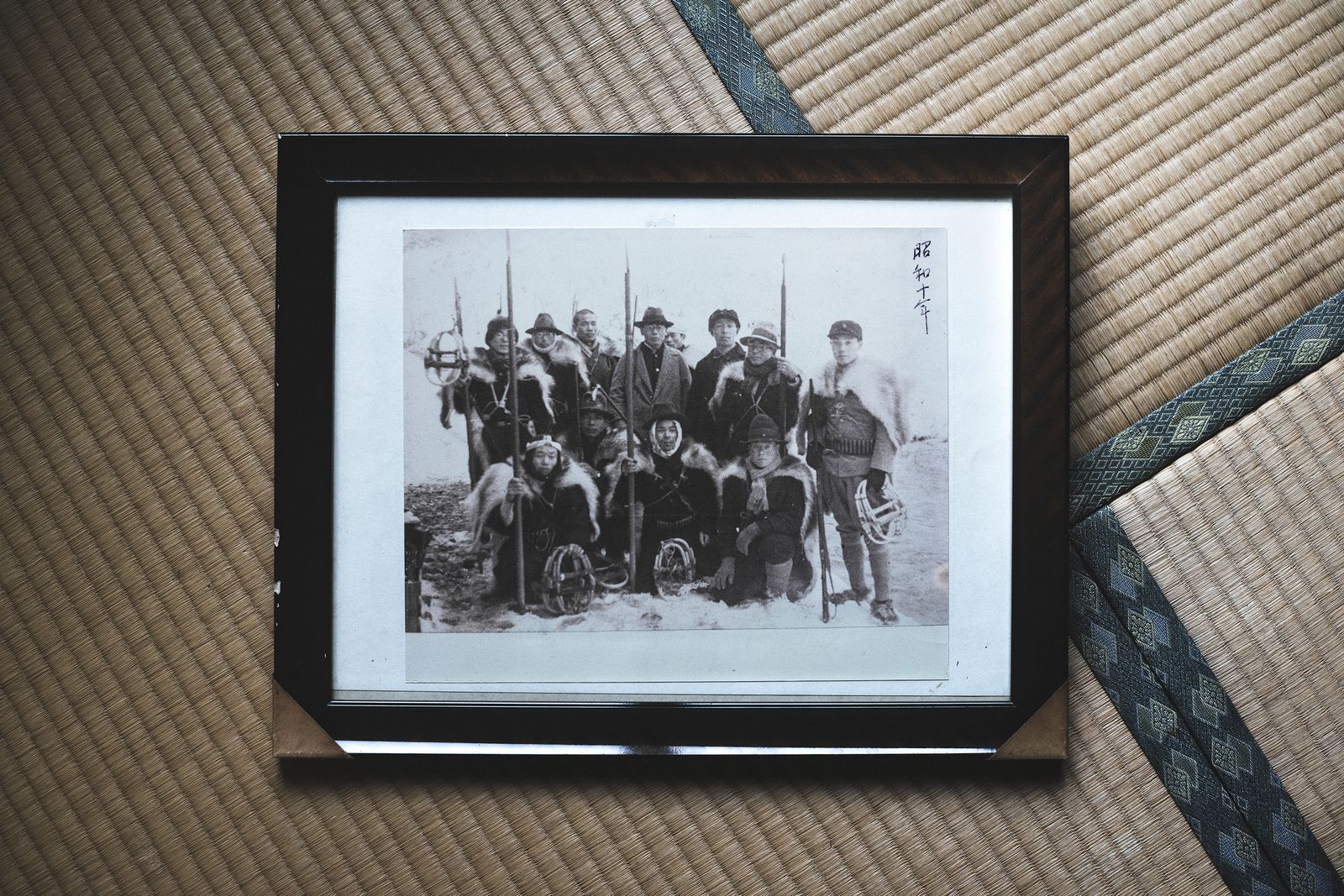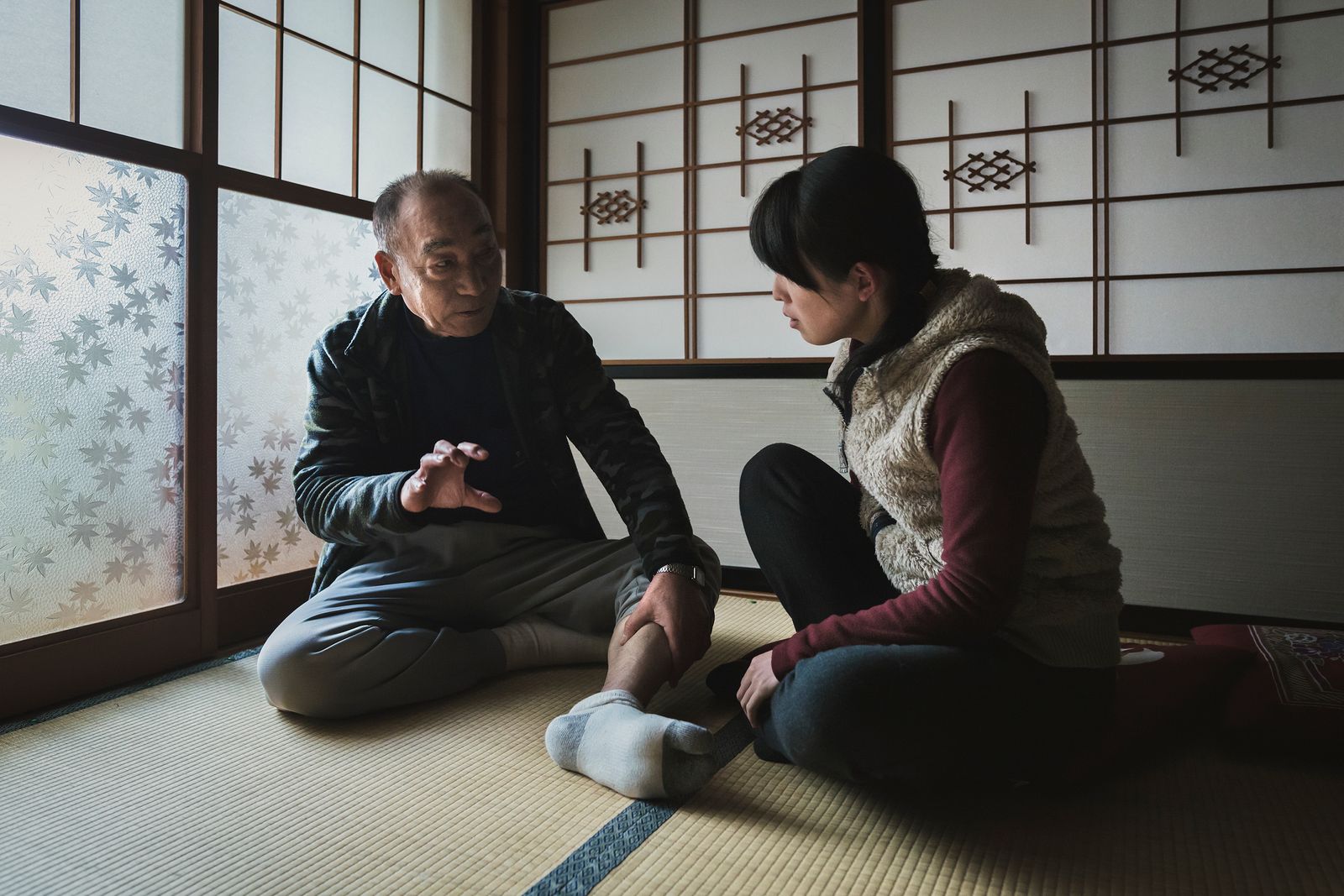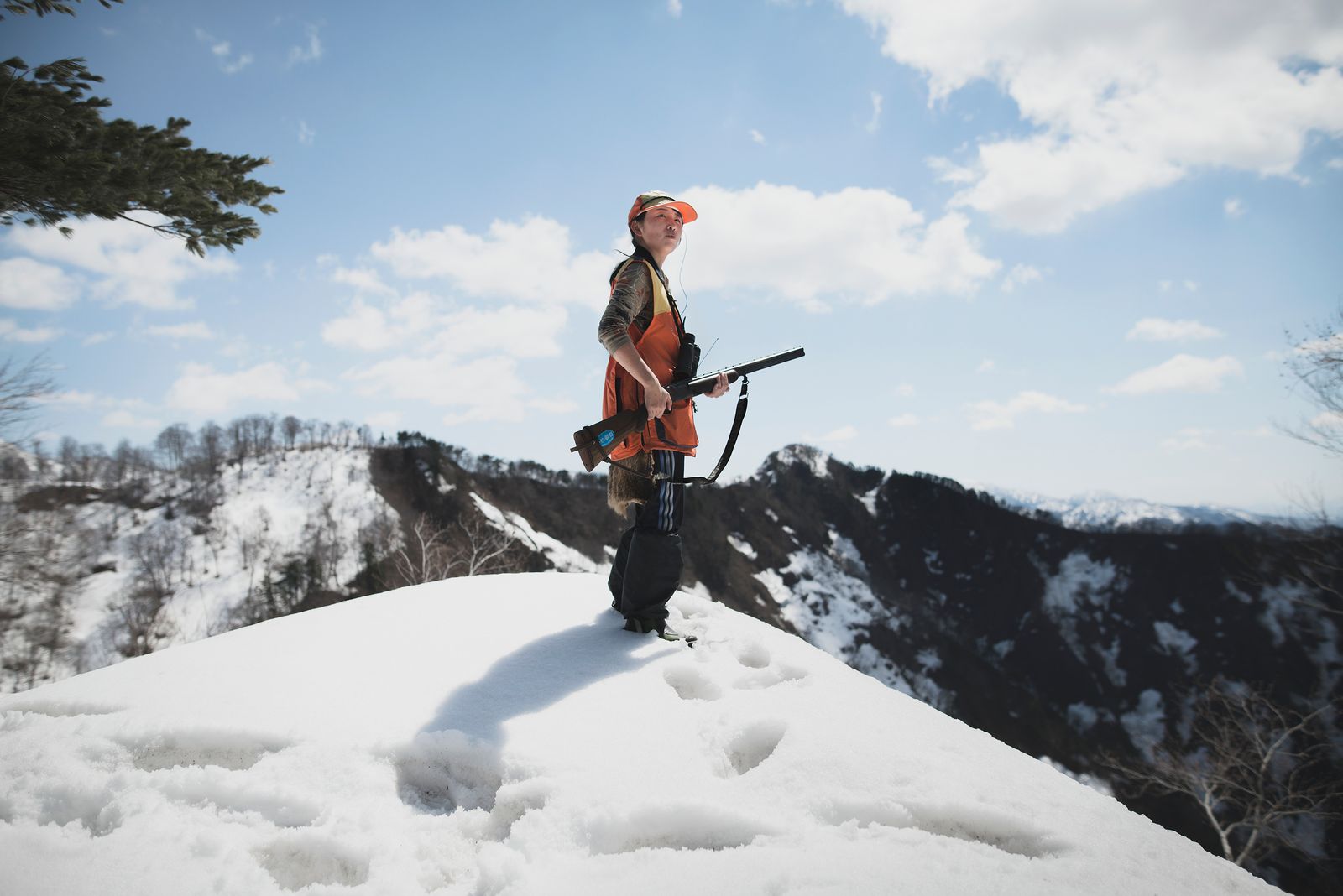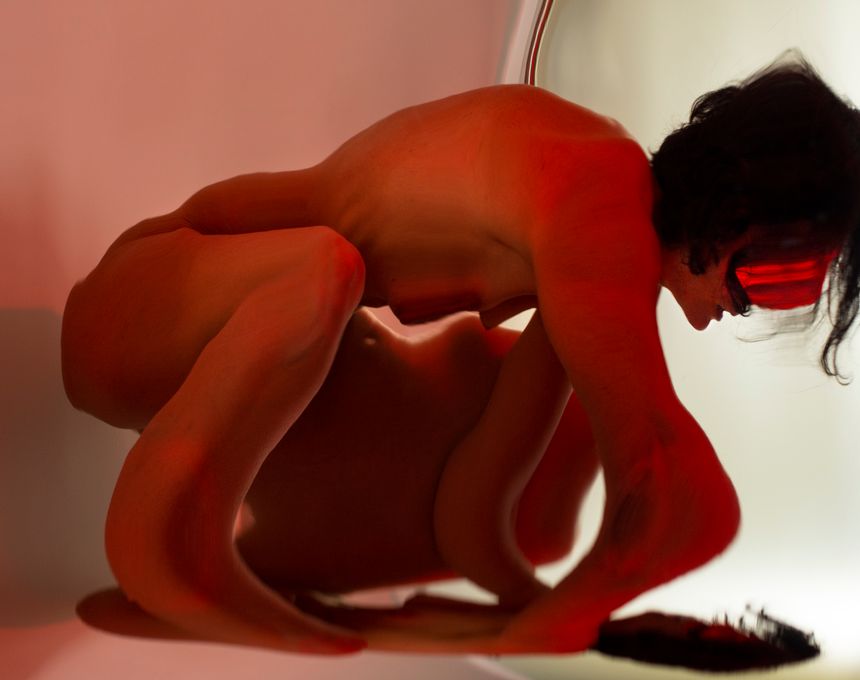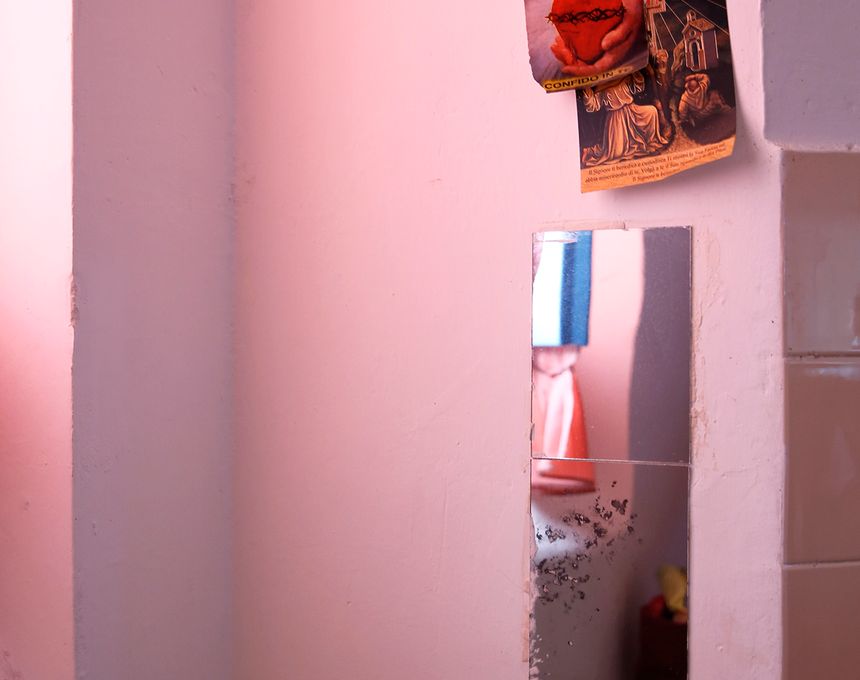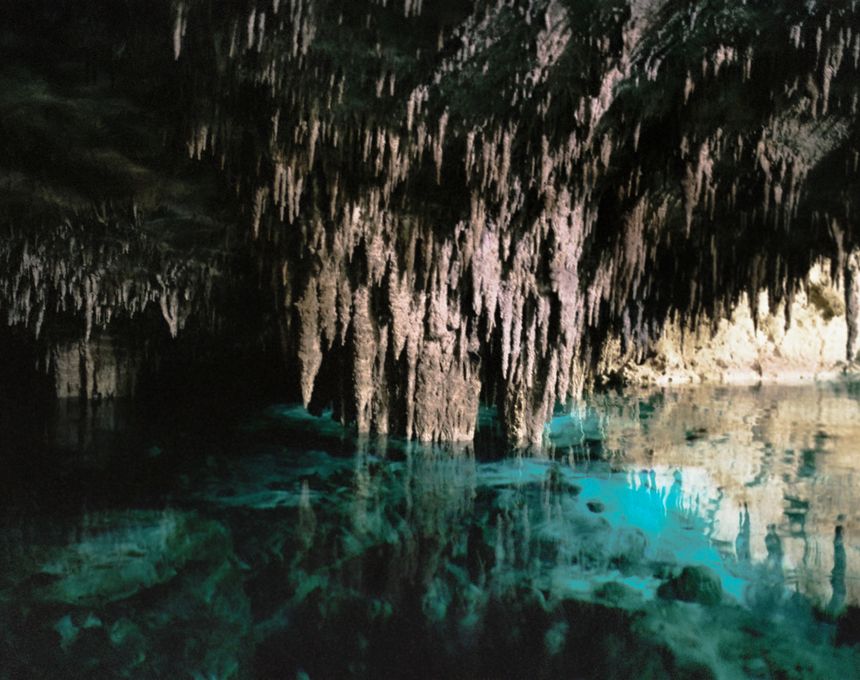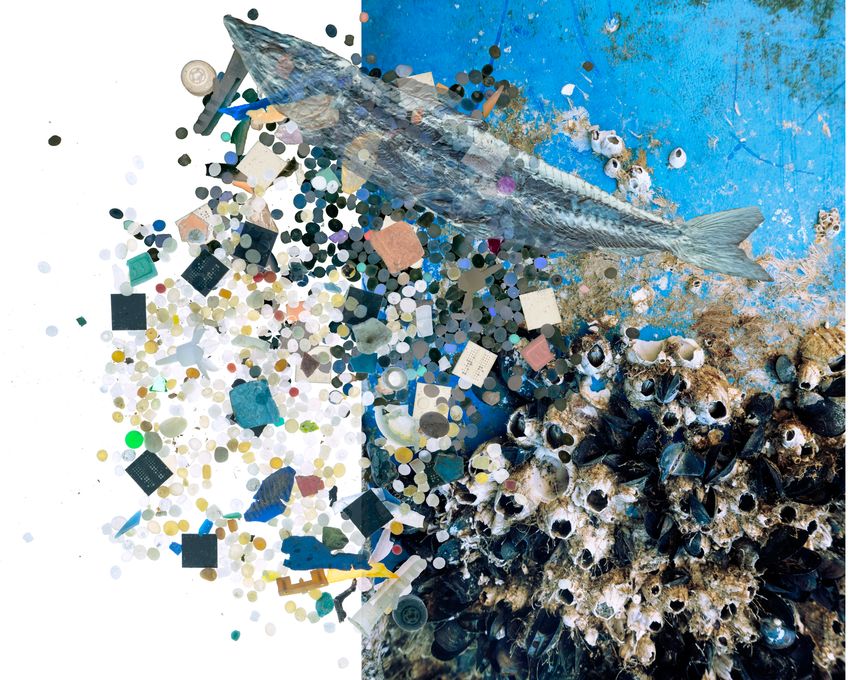Matagi
-
Dates2017 - 2019
-
Author
- Topics Portrait, Documentary
Matagi are traditional hunters living in small villages and settlements in the highlands of northern Honshu, Japan’s main island.
Matagi are traditional hunters living in small villages and settlements in the highlands of northern Honshu, the main island of Japan. From its origins, back in the 16th century, they have made a living of selling meat, skins and other products derived from hunting. Their main prey is the Japanese black bear, a subspecies listed as vulnerable according to the International Union for the Conservation of Nature (IUCN).
These communities, however, never face hunting as a recreational or sporting activity. For the Matagi, Nature is a conscious presence, personified in the Goddess of the Mountain (Yama-no-Kami); a deity who is envious of other women and thus has forbidden them from entering her domains for over five centuries.
Following the Fukushima incidents in 2011, the state prohibited many Matagi communities from selling bear meat, due to the high risk of it being intoxicated by radiation. In 2017 the Japanese authorities lifted the veto, and the Matagi could resume what has been their main economic activity for centuries. Nevertheless, this community faces a more than likely extinction of its cultural heritage. The global aging of the Japanese population, legal and regulatory limitations on hunting, and attachment to values and religions that no longer germinate among the younger generations, are some of the main reasons that leave these hunters without much hope of preserving their legacy in the early 21st century.
However, the need to preserve the Matagi cultural heritage has prevailed over religious convictions and, in the face of the disinterest of young men, the first cases of Matagi women –accepted and trained as hunters– have recently emerged. Women who, as is currently the case on a global scale and in all strata of society, claim an equal position in every field.
